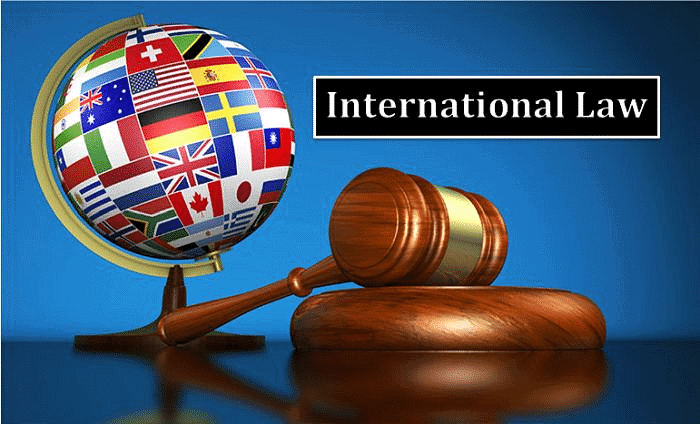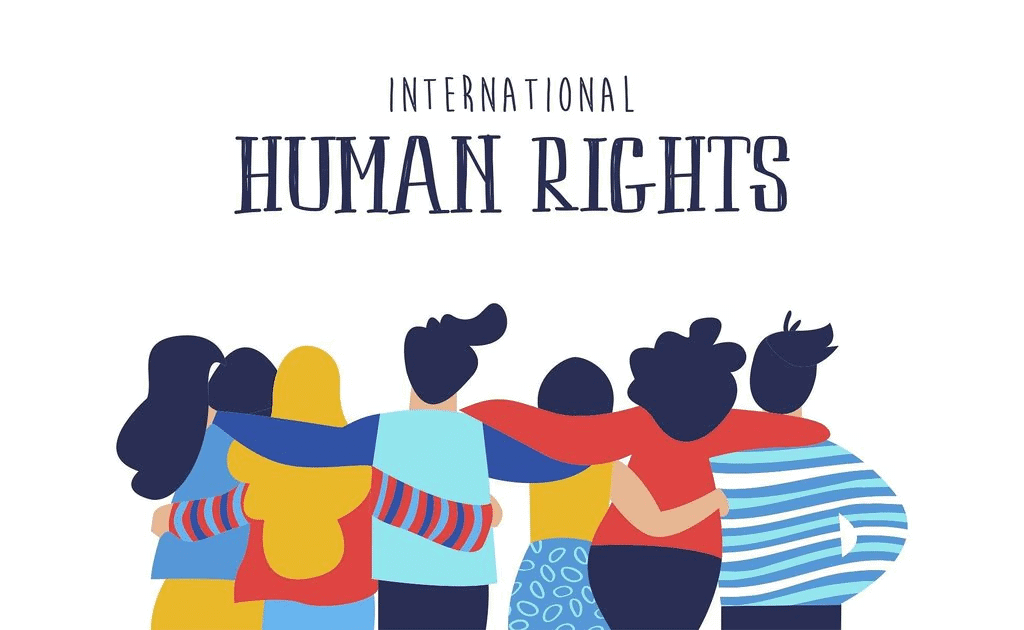International Context Chapter Notes | Revision Notes for CUET Commerce Preparation PDF Download
Introduction to International Law
1. What is international law?International Law governs disputes between two or more state parties and regulates their conduct.

- It also applies in cases of disputes between private parties across different jurisdictions.
- It is used to resolve conflicts that arise from differences in domestic laws.
2. History and Meaning
- International law has a long history but became more defined in the 19th century during the period of industrialization and expansion when concepts like state sovereignty and non-intervention gained prominence.
- These ideas were spread worldwide by European powers through colonization.
- After World War II, international law became truly global due to rapid decolonization and the emergence of independent states with diverse cultures.
- The establishment of international organizations such as the League of Nations and the United Nations marked a significant development in international law, as these organizations play a crucial role in shaping and promoting legal frameworks.
- International law is based on the consent of states, but some rules apply regardless of consent. It serves as a framework for maintaining order and resolving conflicts in the international community.
International Law can be further categorized into:
3. Public International Law
- Public International Law governs the relationships between states, emphasising the interactions between governments rather than private individuals or domestic legal matters.
- The primary objective of Public International Law is to establish a framework of rules and regulations that promote stable and organised international relations.
- This branch of law is further divided into several fields, including:
- Law of the Sea
- International Humanitarian Law
- Law of Treaties
4. Private International Law
- Private International Law, often referred to as Conflict of Laws, comprises rules and principles that govern the interactions and transactions of private parties from different countries.
- This area of law encompasses conventions, model laws, domestic regulations, and secondary legal sources addressing issues like jurisdiction and applicable law in disputes.
- Unlike Public International Law, which focuses on the rights and obligations of governments, Private International Law deals with transactions between private individuals from various nations.
International Bodies Involved
- International organisations such as the Hague Conference on Private International Law, the International Centre on the Settlement of Investment Disputes (ICSID), and the United Nations Commission for International Trade Law (UNCITRAL) aim to harmonise private laws across different countries and encourage consistent application.
- The Hague Conference focuses on developing conventions related to private law.
- UNCITRAL is dedicated to creating model laws and guidelines concerning international trade and commercial laws.
- Notable international conventions in this area include:
- CISG (United Nations Convention on Contracts for the International Sale of Goods), which aids in resolving choice of law issues in contract disputes.
- UNCITRAL Model Law on International Commercial Arbitration, serving as a framework for domestic laws regarding international arbitration.
- These conventions are increasingly being adopted by numerous countries.
Sources of International Law
- Determining the source of law within a domestic legal system is relatively straightforward.
- It can be done by examining the laws enacted by the legislative body and, if there is a gap in those laws, relying on the decisions made by domestic courts.
- But, it is not so easy to pinpoint the sources of International law.
- Yet, the most authoritative source of international law is Article 38(1) of the Statute of the International Court of Justice, which provides that when a court which deals with disputes relating to international law, it shall apply: "International conventions, whether general or particular, establishing rules expressly recognized by the contesting states,
a) International custom, as evidence of general practice accepted by law
b) The general principles of law recognized by civilized nations
c) Subject to provisions of Article 59, judicial decisions and teachings of the most highly qualified publicists of the various nations, as subsidiary means for the determination of rules of international law”
Article 38(1) of the International Court of Justice (ICJ) Statute is considered to be the general norm on sources of international law. It is widely accepted despite being technically limited to ICJ. The ICJ's role is to decide disputes in accordance with international law, and all United Nations members are automatically members of the ICJ. The provisions of the ICJ Statute do not have a specific hierarchy, but are generally applied in a certain order in case of disputes.
Treaties
- A state may express its agreement to be bound by a treaty through signature, exchange of instruments, or ratification.
- Consent by signature involves the representatives being authorized to take decisions on behalf of the state.
- Consent by exchange of instruments is recorded by exchanging documents containing agreed terms.
- Ratification is the act by which a state agrees to be bound by a treaty, which usually requires the assent of the President or a majority vote in the legislature.
- Ratification is a preferred method in multilateral treaties involving multiple countries, and is considered the most accepted form of agreement as it is in written form and explicitly assented to by the parties involved.
Customs
- Customary law comes from consistent state practice and opinio juris, not from unsigned treaties.
- It is established by examining state practice and opinio juris and can be demonstrated by various sources, such as United Nations declarations.
- International law custom is based on the law of nature or the mutual consent of states.
International Court of Justice (ICJ) decisions
- Article 59 of the Statute of the ICJ states that the decisions of the ICJ are only binding on the parties involved in a dispute and the ICJ tends to follow its previous decisions and rarely departs from relevant case law.
- Despite some feeling a change is necessary, these are currently the prevalent sources for international law.
International Institutions
- In the 19th century, the growth of sovereign nations and increasing international relations led to the development of international cooperation.
- This resulted in the formation of non-governmental organizations such as the International Law Association (1873) and the International Committee of the Red Cross (1863), which laid the foundation for the League of Nations in 1919 and eventually the United Nations in 1945.
International Labour Organization (ILO)
The International Labor Organization (ILO) was established in 1919 after the First World War to promote social justice through regulations and agreements to improve labor conditions and achieve humane treatment of workers worldwide.
United Nations Educational, Scientific and Cultural Organization (UNESCO)
UNESCO was established in 1945 with the aim of assisting member countries in promoting culture, safeguarding heritage, disseminating knowledge, and fostering cooperation among nations to support sustainable development.
World Bank and the International Monetary Fund (IMF)
- The World Bank was established in 1944 and began its operations in 1946 as the International Bank for Reconstruction and Development (IBRD), in conjunction with the International Monetary Fund, to aid in the reconstruction and support of the economies of countries affected by World War II.
- The World Bank extends loans to member countries for developmental purposes and secures its funds through the global financial markets.
World Health Organization (WHO)
- The World Health Organization (WHO) was established in 1948 to assist member states in addressing health challenges by setting norms and standards, coordinating disease control efforts, monitoring global health trends, and raising awareness about health issues.

- The WHO collaborates with organizations such as the World Bank and UNESCO to foster international cooperation on human rights, development, and health-related concerns.
- Since the conclusion of World War II, these organizations have expanded their roles and enhanced coordination among various government departments and non-governmental organizations.
International Human Rights
- International Human Rights are a matter of concern within international law and face challenges in terms of enforcement and the imposition of sanctions.
- The need for a system to safeguard human rights became evident after the Second World War, leading to a surge in activism and literature focused on this issue.

- The International Covenant on Civil and Political Rights(ICCPR) acknowledges certain rights that cannot be violated, such as the right to life and freedom of thought. It also aligns with customary international law that prohibits practices like torture, genocide, and slavery.
- A significant document in this context is the Universal Declaration of Human Rights, which details various provisions, including:
- Liberty of a person (Article 3),
- Equality before law (Article 7),
- Prohibitions on torture (Article 5),
- Socio-economic rights such as the right to work and equal pay (Article 23),
- The right to social security (Article 25)
- International human rights law aims to protect individual rights through various international conventions, treaties, and agreements.
- The ICCPR and the Universal Declaration of Human Rights are crucial in establishing non-derogable rights and principles of non-discrimination.
- The UN High Commissioner for Human Rights and the Human Rights Council play key roles in promoting human rights and coordinating efforts among UN bodies on human rights matters.
- While human rights violations are typically addressed by the state where they occur, some violations are so severe that any state may take action against them.
- International human rights law empowers the global community to protect the rights of individuals in other countries.
- Overall, international human rights law is considered highly important in the field of international law, and is protected and enforced through various international and domestic bodies.
- A significant document in this context is the Universal Declaration of Human Rights, which details various provisions, including:
Customary International Law
- International customary law is a source of public international law and is described in Article 38 of the International Court of Justice's Statute as "evidence of a general practice accepted as law."
- It refers to State practices that are accepted by the States themselves as legally required.
- However, the exact formulation of international custom is disputed and unclear, such as when a State practice becomes legally binding, and how to identify or prove its existence.
International Law & Municipal Law
- International law and domestic law (or municipal law) have a varying relationship in different countries. Some nations automatically incorporate international law into their legal system, while others require specific local legislation to do so.
- Generally, international law has a superior status over domestic law. This means that violations of domestic law cannot be justified by referencing international law.
- In some countries, local laws must align with their international obligations.
- For instance, in the United Kingdom, treaties need to be transformed into domestic law, whereas in the United States, customary international law is considered federal law.
International Law & India
- In India, the constitution gives the Union of India and the Parliament the power to implement international treaties through Article 253.
- The courts must interpret the constitution in light of the Charter of the United Nations.
- International treaties that restrict the rights of citizens or modify state laws require a legislative measure, while those that do not restrict rights do not require a legislative measure but cannot override domestic law.
- There have been cases where the Indian courts have used international treaties to create legally binding obligations, such as in the case of Vishaka v State of Rajasthan, which used the Convention on Elimination of all forms of Discrimination against Women to create obligations regarding sexual harassment.
- The interplay of international law in India is dealt with as needed, with restrictions on rights requiring legislative amendments, while enhancing or broadening rights is allowed as long as there is nothing contrary in domestic law.
Dispute Resolution
- In domestic law, disputes can be resolved through various methods such as going to court, mediation, conciliation, or arbitration.
- In international law, disputes can arise regarding treaties or basic covenants and can be resolved through established institutions and mechanisms.
International Court of Justice
- The International Court of Justice (ICJ) is the primary judicial body of the United Nations (UN), situated in The Hague, Netherlands.
- All UN member states are automatically parties to the ICJ's statute, while non-member states can also join.
- The ICJ can adjudicate cases if the involved parties acknowledge its jurisdiction, usually through consent or treaty commitments.
- The court can serve as a forum for dispute resolution if stipulated in a treaty between the parties. In some instances, referring disputes to the ICJ is mandatory.
- Additionally, the ICJ provides non-binding advisory opinions on legal matters to countries under Articles 65-68 of its statute.
International Criminal Court
- The International Criminal Court (ICC) is a tribunal set up through the Rome Statute in 2002 with the purpose of prosecuting criminals for 4 major crimes: Crimes against Humanity 2 Genocide War Crimes 2 Crime of Aggression
- The International Criminal Court (ICC) has jurisdiction over individuals who commit certain crimes, such as genocide or war crimes, in countries that accept the jurisdiction of the ICC.
- The ICC can take up cases referred by a country or the ICC Prosecutor, and has limited jurisdiction in criminal matters listed under the Rome Statute.
- However, the ICC's jurisdiction is more restricted than ordinary criminal courts.
Other Dispute Resolution Mechanism
- International disputes can be resolved through various methods including mediation, arbitration, or dispute resolution panels as outlined in treaties.
- The United Nations has set up forums such as the International Court of Justice and the World Bank to address specific types of disputes.
- The procedures for resolving disputes vary and are determined by the agreements between the parties involved and the terms of the treaties.
FAQs on International Context Chapter Notes - Revision Notes for CUET Commerce Preparation
| 1. What are the main sources of international law? |  |
| 2. How do international institutions contribute to the development of international law? |  |
| 3. What is the relationship between international law and municipal (domestic) law? |  |
| 4. How does customary international law differ from treaty law? |  |
| 5. What are the key aspects of international human rights law? |  |

















